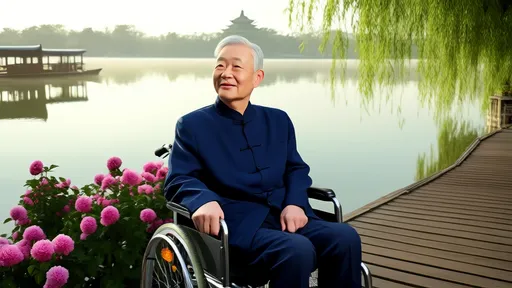Japan has long been celebrated for its rich cultural heritage, cutting-edge technology, and breathtaking landscapes. However, for travelers with allergies, navigating the country can present unique challenges. From food allergens to environmental triggers, understanding Japan's allergy landscape is crucial for a safe and enjoyable visit. The Japanese approach to allergy awareness is both meticulous and evolving, offering lessons for global audiences.
Food allergies are a significant concern in Japan, where ingredients like seafood, wheat, and soy are staples in traditional cuisine. Dishes such as sushi, ramen, and tempura often contain common allergens, making dining out potentially hazardous for sensitive individuals. The Japanese government has implemented strict labeling regulations for processed foods, requiring clear identification of seven major allergens: eggs, milk, wheat, buckwheat, peanuts, shrimp, and crab. Many restaurants now provide detailed allergen menus or allergy-friendly options, particularly in urban areas.
Beyond food, seasonal allergies affect millions in Japan. The country's famous cherry blossoms, while beautiful, signal the start of spring pollen season. Japanese cedar pollen, known as "sugi," causes widespread hay fever from February to April. Many locals wear masks during this period, a practice that has become more common globally since the COVID-19 pandemic. Pharmacies stock an array of antihistamines and nasal sprays, with some products uniquely formulated for Japanese pollen types.
The concept of allergy-friendly travel has gained traction in Japan's tourism industry. Major hotels increasingly offer allergy-conscious rooms with special air filtration systems and hypoallergenic bedding. Some ryokan (traditional inns) provide customized kaiseki meals free from common allergens. Tokyo Disneyland and Universal Studios Japan have implemented comprehensive allergy protocols, including chef consultations and special meal preparations for guests with dietary restrictions.
Japan's approach to school food allergies is particularly noteworthy. After tragic incidents involving allergic reactions in schools, the country developed rigorous prevention systems. Many schools maintain epinephrine auto-injectors and require detailed allergy action plans for affected students. The "food allergy notebook" system helps track students' conditions and dietary needs across their educational journey. These measures have significantly reduced allergy-related emergencies in educational settings.
Technological innovations are shaping Japan's allergy landscape. Apps like "Allergy Translation" help foreign visitors communicate their dietary restrictions in Japanese. Research institutions are developing low-allergen rice and other staple foods through advanced biotechnology. Some companies are even creating allergen detection devices for home use, allowing individuals to test meals before consumption.
Cultural factors influence Japan's allergy awareness in unique ways. The emphasis on group harmony motivates restaurants and schools to accommodate allergic individuals rather than exclude them. At the same time, the traditional value of "gaman" (endurance) sometimes leads to underreporting of mild symptoms. Medical professionals are working to balance cultural norms with proper allergy management.
For travelers with allergies, preparation is key when visiting Japan. Learning essential allergy-related phrases in Japanese can be lifesaving. Carrying allergy cards that explain restrictions in both English and Japanese is highly recommended. Researching medical facilities near your accommodation and understanding Japan's healthcare system for foreigners are prudent steps. Travel insurance that covers allergy-related emergencies provides additional peace of mind.
Japan's evolving allergy awareness reflects its broader approach to hospitality and safety. From cutting-edge research to practical accommodations in daily life, the country demonstrates how societies can adapt to protect vulnerable populations. As global allergy rates continue to rise, Japan's experiences offer valuable insights for international audiences grappling with similar challenges.

By /Aug 13, 2025

By /Aug 13, 2025

By /Aug 13, 2025

By /Aug 13, 2025

By /Aug 13, 2025

By /Aug 13, 2025

By /Aug 13, 2025

By /Aug 13, 2025

By /Aug 13, 2025

By /Aug 13, 2025

By /Aug 13, 2025

By /Aug 13, 2025

By /Aug 13, 2025

By /Aug 13, 2025

By /Aug 13, 2025

By /Aug 13, 2025

By /Aug 13, 2025

By /Aug 13, 2025

By /Aug 13, 2025

By /Aug 13, 2025